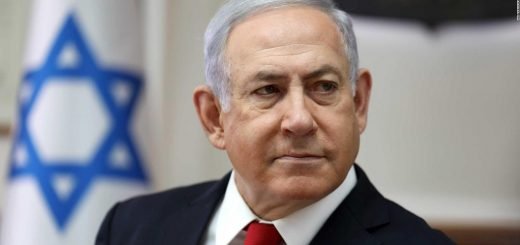Search for peace in Yemen War-Zone
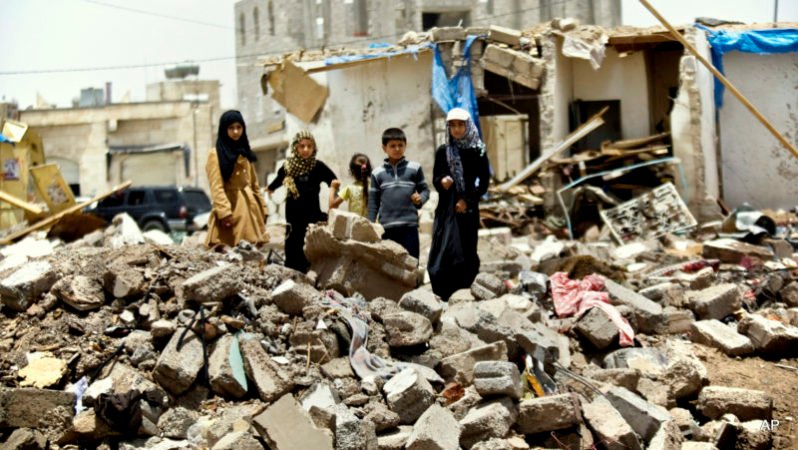
For about a decade now, the southernmost country of the Arabian peninsula Yemen has been witnessing a protracted war that has ravaged the country internally and has caused innumerable sufferings. What began as a civil uprising in 2011 against the inefficient and corrupt government of former President Ali Abdullah Saleh, has now turned into, what has been labelled as, the ‘world’s worst humanitarian crisis’.
Due to massive protests, Saleh stepped down and transferred power to a Gulf Cooperation Council (GCC)-backed Transitional-Government headed by Abd Rabbuh Mansur Hadi in 2012, but before any final arrangements could be made, Houthi-militants launched a coup against the government in 2014 which marked the beginning of a civil war in the country.
Houthis, formally known as Ansar Allah, is a Zaydi-Shia revivalist group that has been active in northern-west Yemen since 2004 leading an anti-establishment war, and finally took over the country’s capital Sanaa in 2014. After years of fighting, the country has become fragmented into multiple cantons of political and military control with no centralised authority. Further, the war has impoverished the already poor country by destroying the economy, infrastructure, institutions and has taken the lives of countless citizens, while pushing even more, on the edge of a humanitarian crisis leaving 80% population of the country dependent on some form of assistance and aid. It has also been brought to notice by the UN, that half of the country’s total 30 million population is at risk of famine.
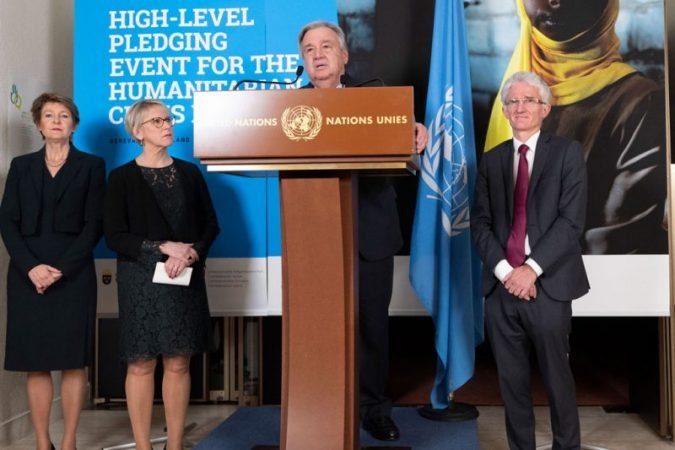
Complexities Involved
At present, the country hosts multiple centres of power that share deep mutual suspicion towards the other. The war took an international dimension when Saudi Arabia backed by coalition partners like the USA, UK and France-launched an offensive mission in 2015, against the Houthis rebel, who they believe are supported by the Iranian regime. While Iran denies the charges, the inert technological and military supported provided by Iran to the militia-group can hardly be completely ruled out.
Saudi fears a Shia-backed government in its backyard can prove to be a strategic and security threat given the critical geographical location of Yemen that overseas the crucial sea lanes near Bab al Mandeb Strait. Riyadh intervened in the war with an offensive-strategy, hoping that with the resource-superiority and technological sophistication it would be quickly able to subdue the Houthi forces.
But the tactical mistake of underestimating Houthi capabilities only exacerbated the economic and human costs of the conflict and has now made the Saudis guilty of committing serious human rights violations in this catastrophic war, given that their air bombardments and blockade over the borders have caused most suffering for the civilians.
Where on the one hand, the Houthi-forces have been able to put up a strong defence against the Saudi led-coalition and now controls about one-third territory of Yemen, anti-Houthi parties led by internationally recognised leader Abd Hadi, and including groups like STC(Southern transition Council), Joint Resistance Forces led by Tareq Saleh, have failed to put up a collective front.
They are marred by inner-fighting and rather than agreeing on a common agenda and future-course regarding the country, they just agree on what they oppose. STC front is supported by UAE, and they have engaged in frequent tussles with Hadi government over exercising control in southern provinces.
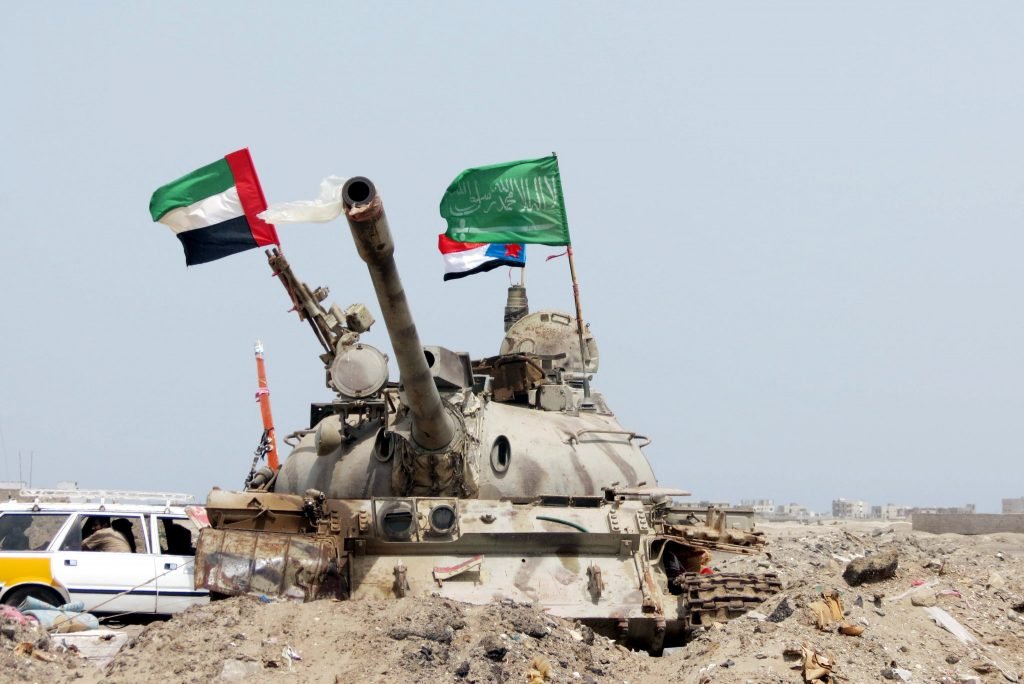
STC harbours secessionist demands and wish to see South Yemen separate from the North as was the de-facto position before the unification of Yemen in 1990. STC wrested effective control of Aden in 2019 which increased the possibility of a conflict within the anti-Houthi faction itself before Riyadh intervened and brokered a peace deal to keep intact the fragile coalition. Currently, in keeping with the Riyadh Agreement(2019), a power-sharing arrangement has been reached between the government and STC and the latter has, for the time being, denounced its self-rule claims.
Brokering Peace
A peace deal has evaded the conflict given the multiple centres of stakeholders involved and their desire to pursue maximalist benefits for themselves. There has been considerable disagreement regarding the issue of engagement with the Houthis, where the USA is considering labelling the Iran-backed outfit as a ‘Foreign terrorist Organisation’, the regional powers including Saudi Arabia, UAE and even the EU and UN have adopted a toned-down and conciliatory approach and are engaging with multiple parties to the war, including Houthis, to reach at a minimum commonly acceptable agreement to end the war.
This has become inevitable as the Houthi-faction political standing has increased on account of the large area and population it governs and its ability to successfully resist any foreign-imposed settlement.
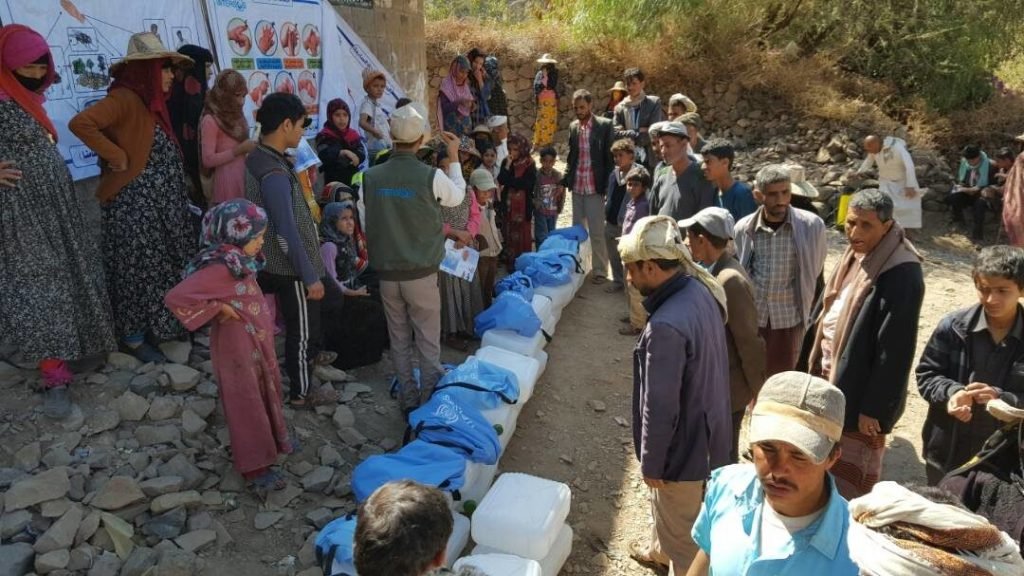
UN has been playing a key role to bring a halt to the dispute and it has acted in many capacities from being involved as a ‘mediator’ to being a ‘provider’ of crucial lifesaving assistance. While the organisation has met success in short-term relief measures like provision of basic goods including medicines, food, clothes it is still working at strengthening long-term measures like reaching a ‘comprehensive agreement’ that includes securing a ceasefire, surrender of weapons, investing in state-institutions, resumption of services, community capacity-building, strengthening capacities of local NGOs, the participation of women in post-conflict agenda etc.
As the foreign parties to the war becomes restless of the long-drawn war and prepares to withdraw their forces it becomes even more vital to have standing structures on ground that can build on and maintain the fragile peace of the country.




